January 19, 2024
Air Date: January 19, 2024
FULL SHOW
SEGMENTS
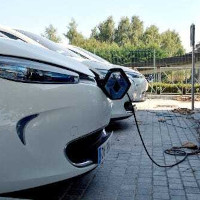
Feds Power Up Electric Cars
View the page for this story
The U.S. Department of Transportation recently granted more than $600 million to states and communities across the country to roll out new EV charging stations and tune up existing ones. Transportation Secretary Pete Buttigieg joins Host Jenni Doering to discuss the connections between EV charging access, environmental justice, and economic growth. (11:29)
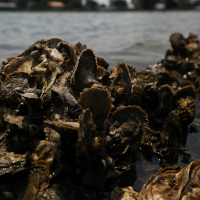
Beyond the Headlines
/ Peter DykstraView the page for this story
Living on Earth Contributor Peter Dykstra joins Host Paloma Beltran with good news of an oyster baby boom in the Chesapeake Bay. Also, the EPA is reviewing the safety of vinyl chloride, which is widely used in everything from water pipes to medical devices but is a carcinogen that can harm livers and neurological systems. And in history, they look back to when John Kerry spoke about climate change at his confirmation hearing as Secretary of State. (04:36)
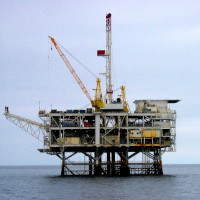
Climate Deception
View the page for this story
When scientists began to warn in the later half of the twentieth century that burning oil, gas, and coal could bring severe consequences for our planet, they touched a nerve in the powerful fossil fuel industry. In this second installment of our series on climate change disinformation, historian of science Naomi Oreskes and Host Steve Curwood dive into how the fossil fuel industry infiltrated the political sphere and scientific community to block climate action. (20:42)
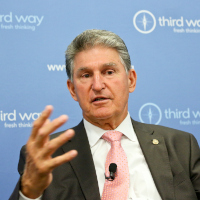
Joe Manchin, 3rd Party Candidate?
/ Phil McKennaView the page for this story
A potential third-party presidential run by West Virginia Democratic Senator Joe Manchin could influence the outcome of the 2024 election. Inside Climate News reporter Phil McKenna is back on the campaign trail in New Hampshire with this report about Senator Manchin’s support of fossil fuels and the climate concerns of New Hampshire voters. (09:33)
Show Credits and Funders
Show Transcript
240119 Transcript
HOSTS: Paloma Beltran, Jenni Doering
GUESTS: Pete Buttigieg, Naomi Oreskes
REPORTERS: Peter Dykstra, Phil McKenna
[THEME]
BELTRAN: From PRX – this is Living On Earth.
[THEME]
BELTRAN: I’m Paloma Beltran.
DOERING: And I’m Jenni Doering.
Transportation Secretary Pete Buttigieg says EV charging is needed everywhere from trucking corridors to remote regions of Alaska.
BUTTIGIEG: Some places that aren’t even accessible by road at all, it’s no small matter to ship liquid fuel to that region. So if you have the beginnings of renewable electricity through wind, paired with access to EVs, that’s going to make a big difference for cost of living.
BELTRAN: Also, possible third-party presidential candidate Senator Joe Manchin discusses fossil fuels and energy.
MANCHIN: I’ve always said you cannot eliminate your way to a cleaner climate. You can innovate, if you want the world to follow. But there’s my friends on the far left who believe they can eliminate. Stop using this, stop using that, stop using. That’s not going to happen.
BELTRAN: That and more, this week on Living on Earth. Stick Around!
[NEWSBREAK MUSIC: Boards Of Canada “Zoetrope” from “In A Beautiful Place Out In The Country” (Warp Records 2000)]
[THEME]
Feds Power Up Electric Cars
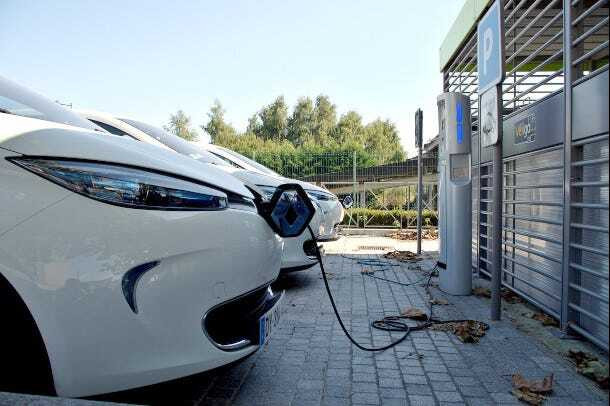
President Biden has set a goal for the U.S. to increase from 170,000 to 500,000 EV charging stations by the end of this decade. (Photo: Stivabc, Pixabay.com)
BELTRAN: From PRX and the Jennifer and Ted Stanley Studios at the University of Massachusetts, Boston this is Living on Earth. I’m Paloma Beltran.
DOERING: And I’m Jenni Doering.
Demand for electric vehicles is rising but one major roadblock for Americans who’d like their next car to be an EV is where to “fill up”. Gas stations are everywhere, but not so much with EV chargers. So the federal government is stepping in to give EV charging a jumpstart with the help of funds allocated by the 2021 Bipartisan Infrastructure Law. The Department of Transportation recently issued hundreds of millions of dollars in grants to states and communities across the country to roll out new EV charging stations and tune up existing ones. Here with us to discuss the future of EV infrastructure is the U.S. Secretary of Transportation, Pete Buttigieg. Hello Mr. Secretary and welcome to Living on Earth!
BUTTIGIEG: Thank you for having me on.
DOERING: So why are EV charging stations important?
BUTTIGIEG: Well, to put it simplistically, they're important because you need them to keep your car going. Look, some Americans have a single-family home with a garage. They've got all the charging infrastructure they need because you have a plug in the wall, and it's that easy. But if you can't charge at home or at work, or if you're driving long distances every day, and even if you charge at home, you're gonna push the boundaries of your range, you need another option. And so we need to make sure that those chargers are there everywhere you need them. The same way that today, when you leave your house to go on a road trip, you know, there's gonna be a gas station when you need one. And that's not all going to happen on its own. There are some places where it's already profitable for companies to put in charging stations, and they already have. Other areas, we need to make sure that we invest so that it is easier for Americans to take advantage of the benefits of owning or using an EV.
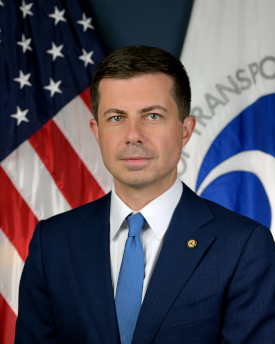
US Secretary of Transportation Pete Buttigieg says he is committed to creating green transportation infrastructure that supports electric vehicles as well as clean public transportation. (Photo: Pete Buttigieg, U.S. Department of Transportation, public domain)
DOERING: Yeah, how many stations do we have across America now? And how many do we need?
BUTTIGIEG: So we definitely need more than we have. We've seen an increase of about 70% so far since President Biden took office in terms of the chargers that are out there. But we need to get to about half a million by the end of this decade. That's President Biden's goal. And in order to do that, we need to continue accelerating our investments. Last time I checked, we got about 166,000 chargers out there. So clearly a long way to go, which is why we're pushing so hard to get them out there on a more widespread basis. And to make sure they're there where they're needed, whether again, it's making sure every 50 miles or less on a road trip, you can find one on a highway, or if you're in a multifamily dwelling in a low income area in a city, that there's a charger there for you.
DOERING: And what about repairing and replacing existing charging stations? Why is this important?
BUTTIGIEG: So this is a problem that sounds new, we're still trying to get those chargers out there. But it's already becoming an issue, which is why we also have funding in the infrastructure package to make that first generation of chargers more reliable. If you think about it, you know, we've now got some charging infrastructure out there that's five, ten, even 15 years old. And like anything else in its first generation, there are growing pains, kinks, and not all of those were built to the same high standard that we're now requiring for these federally supported chargers going out across the country. So we're investing in the reliability and the repair of the chargers that are already out there through a separate round of grants, even as we're building those new charters that communities are putting in in every state plus Puerto Rico and DC, thanks to the funding that our administration is put out there.
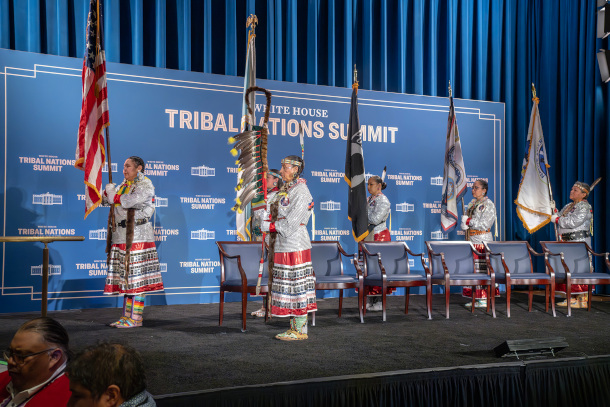
The Department of Transportation worked with Native American communities to help address the unique challenges they face when making the switch to EVs. (Photo: Charles Watkins, Department of Energy, Flickr, public domain)
DOERING: So who's getting this first round of $623 million in grants for EV charging stations? And what went into choosing them?
BUTTIGIEG: So this is part of a bigger set of funds that are available through President Biden's infrastructure package. A lot of it went out to the States through formula, but we knew that we needed another program to fill in some of the gaps. That's where this CFI or charging and fueling infrastructure program comes in. We've made a number of grants around the country through this latest round. And they're going to everything from Cleveland, Ohio, where the Northeast Ohio community has come together with ideas on how to make sure that they're charging stations at community centers, all the way through to a truck oriented facility in New-Mexico, that's gonna help electrify the I-10 corridor for those heavier duty vehicles. It's all about finding the gaps, filling them in, and kickstarting this market, much the same way that almost a century ago, the US invested in airports around the country in a way that helped make sure that the network was strong enough for the aviation sector as a whole to take off in America.
DOERING: Now, how does this help advance environmental justice a priority for the Biden administration?
BUTTIGIEG: Well, a couple of things I would point to, and the lion's share of these funds are going to disadvantaged and historically excluded or overburdened areas. First of all, it's just making sure that everybody can afford to take advantage of the savings. So we're lowering the sticker price of EVs through the Inflation Reduction Act, and making sure the charges are out there. We got to make sure that this is not just a luxury item or rich person's game, that anybody can take advantage. That means making sure the chargers are literally physically in the neighborhoods where people live. The second thing that's very important in terms of environmental justice is health. Look, a lot of Americans live close to a highway or another facility or area where there's a lot of traffic. And that means there's a lot of pollution. And that means there's a lot of public health issues. We can systematically find, for example, how many neighborhoods with many Americans of color are more likely to have children with asthma, simply because of the particulates going into the air as a result of the traffic. Obviously, that changes when you have those cars running on electricity, ideally, renewable electricity. Now all of that means that these specific areas, neighborhoods, whether you're close to a bus depot, or whether you're close to a port or a highway interchange, are areas where it's safer, cleaner to live and where people are healthier, regardless of their racial or economic background.
DOERING: I understand a couple of the recipients in this round were Alaska Native and Native American tribes. Can you talk to me about those?
BUTTIGIEG: That's right. You know, we've had a lot of dialogue with tribal leaders, and we have been working to make sure that this infrastructure package delivers for Indian country, where there are some really unique needs — whether it's the work that we've been doing with the Southwest land based tribes that are expected to cover very long distances with very thin resources, or Alaska where many Native communities have truly unique needs — some places that aren't even accessible by road at all, where the only way you can get a car to a village, as happened to a mayor that I spoke to, is to have it brought in on a barge or an airplane. And then once it's there, it's no small matter to ship liquid fuel to that region. So if you have, for example, as I saw in an Alaska Native area, the beginnings of renewable electricity through wind, paired with access to EVs, that's going to make a big difference for cost of living, in addition to an environmental benefit.
DOERING: Talk to me about the overall strategy in what the federal government is doing to help build out this charging network. You know, what's strategic about the placement of these charging stations?
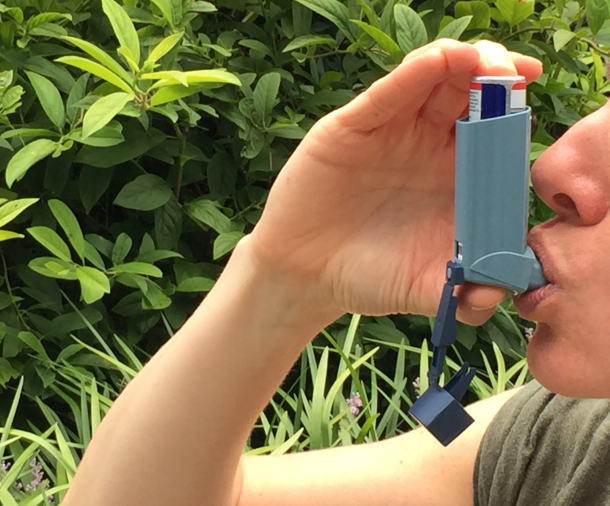
Since living in high-traffic areas increases the risk of developing asthma, the Biden Administration hopes that the switch to EVs will also be a public health win. (Photo: NIAID, Wikimedia Commons, CC BY 2.0)
BUTTIGIEG: So the big strategic picture is this: The automotive industry is going electric. We already see that happening. But certain things are not guaranteed. One will that happen fast enough to help us beat climate change? That means doing good work to make sure they're affordable, accessible, and that you can charge them when you need to. Two, is it going to happen in a way that reaches everybody? And that's where these funds are so important going into those places where the market is just not there yet. It will be, but it's not there yet. And people can't yet profitably put in these charging stations without public support. And three, is it going to be made in America? You know, part of what we require in this program is that if you're using our taxpayer dollars to purchase chargers, that there's a preference for these Made in USA chargers. The Buy America requirements are stronger than ever under President Biden because we know we're kickstarting an industry that's going to create good paying jobs. We are really burying the old false choice of climate versus jobs and discovering in so many ways, particularly in the auto industry, how doing the right thing for our climate is also creating a lot of manufacturing jobs. That's part of why we have the extraordinary manufacturing job creation underway under President Biden with a lot more where that came from. We've got to make sure that the U.S. leads the way in this next generation of the automotive revolution the same way that we did almost 100 years ago. And I take this personally coming from the industrial Midwest, seeing what happens if you fall out. Frankly, the Trump administration allowed China to build a big advantage in EVs. We're making sure America reclaims the initiative. And this is all part of that bigger strategic picture.
DOERING: Now, how up to the task of powering all this EV charging is our electrical grid?
BUTTIGIEG: The truth is we cannot run tomorrow's cars on today's grid. It's why the infrastructure package includes funding for improving the grid as well. You know, I remember these debates three years ago, we were trying to get this infrastructure law through where people said, "Well, you know, you're talking about the grid; you're talking about broadband. That's not infrastructure. Only roads are infrastructure." And what we realized is yes, of course, we're rebuilding our roads. That's a major category of what we're investing in. But it's just as important to have access to the internet as it is the interstate. And it's just as important to have the charging along those road networks as it is to make sure that those road networks are kept in good physical working order.
DOERING: And what about powering those charging stations?
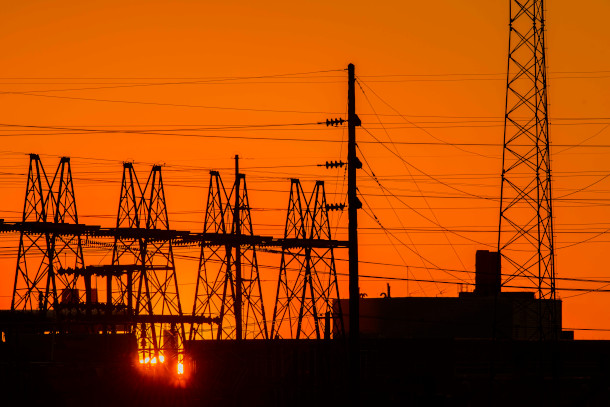
Our current electrical grid is too outdated to support the number of EVs needed to make the switch away from gasoline-powered cars. Therefore, the Biden administration has dedicated funds to upgrading the grid as part of its infrastructure plan. (Photo: Randy Montoya, Flickr, CC BY-NC-ND 2.0)
BUTTIGIEG: So often one of the most difficult things in putting in an EV charging station isn't acquiring the charger or picking out the site. It's the utility work. We're working collaboratively with the Department of Energy in a way that I think sets a new high watermark, at least for our department. Matter of fact, already today. I've been in a meeting with Secretary Granholm. That's not unusual. We have a joint office for working on these things. Making sure, for example, that we team up on defining where these alternative fuel corridors need to be along the U.S. highway network so that the improvements to the grid and to electricity generation the Secretary Granholm's department is leading are compatible and making the most of the improvements to charging infrastructure and the road improvements that we're making out of the U.S. DOT.
DOERING: Now, how vulnerable are these plans for an EV charging network to being dismantled if there's a new administration?
BUTTIGIEG: Well, look, we have seen some hostility to EVs on Capitol Hill, and sometimes it's in the political crosshairs. But I really think that we can move this beyond partisan politics and emphasize that this is good policy. Look, the jobs that are being created, including in the industrial Midwest, in this EV revolution, they're not Republican jobs or Democratic jobs. They're American jobs, and they're benefiting American families. This is the future. There's no way to change that and nor should we want to any more than we would want to change from mobile phones back to rotary and landlines. The important thing is to recognize that get ahead of that and make sure that Americans benefit from that change sooner rather than later.
DOERING: Secretary Buttigieg, if you're given the chance to keep your job beyond this next year, what would you like to achieve when it comes to clean green transportation?
BUTTIGIEG: Well, look, we've made extraordinary progress, but we've got a long way to go. We've got to make sure that our transportation networks for tomorrow are as accessible and as sustainable as possible. This is a global effort. Lots of different countries are trying to do this. I want to make sure the U.S. is in the lead. And that's going to mean doubling down on our strategy of making EVs more affordable and easier to charge. It's going to mean the same thing on the transit side where we are purchasing low and no emission buses for transit authorities to use. It means creating more options for people so that you don't always have to drive, that you don't have to bring a ton of metal with you everywhere you're going, by making sure you have good alternatives with transit and rail, even as we make it safer and easier to drive an EV too. All of these things add up into cleaner air, healthier kids, and the kind of transportation network that we really need and deserve for the 21st century. And I'll be working on that every day I have this job no matter how many days that turns out to be.
DOERING: Pete Buttigieg is the U.S. Secretary of Transportation. Thank you so much.
BUTTIGIEG: Thank you. Thanks for having me on.
Related links:
- Learn more about how the EV charging stations are run.
- Read a detailed scientific explanation of the nuances of EV charging.
- Find out if you’re eligible for a tax credit for purchasing an EV.
[MUSIC: Sam Fribush, Charlie Hunter, Calvin Napper, “People Please” single, Flybird Music]
BELTRAN: Coming up, a baby boom... for oysters. That’s just ahead. Stay tuned to Living on Earth.
ANNOUNCER: Support for Living on Earth comes from Sailors for the Sea and Oceana. Helping boaters race clean, sail green and protect the seas they love. More information @sailorsforthesea.org.
[CUTAWAY MUSIC: Nashville Mandolin Ensemble, “Goodbye Pork Pie Hat” on Plectrasonics, by Charles Mingus, CMH Records]
Beyond the Headlines
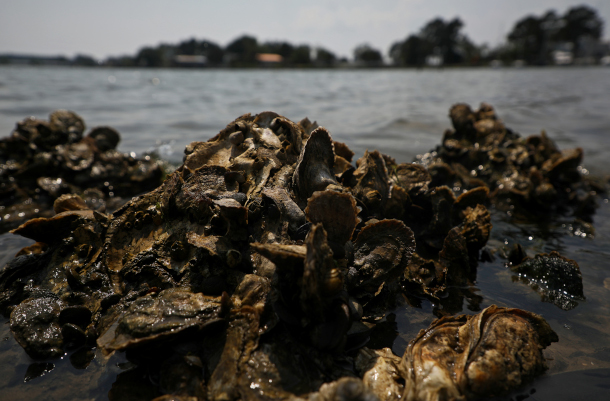
The Chesapeake Bay oyster fishery is an important source of food and income for many people around the estuary. (Photo: Aileen Devlin, Virginia Sea Grant, Flickr, CC BY 2.0)
DOERING: It’s Living on Earth, I’m Jenni Doering.
BELTRAN: And I’m Paloma Beltran.
It's time now for a look beyond the headlines and on the line from Atlanta, Georgia is Living on Earth contributor Peter Dykstra. Hey there Peter, how are you? And what do you have for us today?
DYKSTRA: I'm doing well Paloma. I hope you are too. I'm going to start with a good news story, a potential big recovery that I thought would never happen. Because years ago back in the 1980s, there was an annual Chesapeake Bay Seafood Festival. And at its depths of environmental problems with the bay, there wasn't enough seafood. They had to bring it in from other Atlantic ports. They had to bring it in from the Gulf of Mexico, to have enough oysters and blue crabs to have something to eat at the Seafood Festival. Things were that bad in the bay due to overfishing, pollution; there was a dangerous oyster disease that was making the rounds. But now things are looking up. Oyster recovery efforts, at least in the Maryland part of the bay, seem to be on at least a four year trend of a huge comeback. Maryland's annual Fall oyster survey showed what they call a remarkable number of spat, those a juvenile oysters, showing up through all of the regions of the Chesapeake, and tributaries in the bay everywhere — 86.8 spat per bushel of oysters. That's nearly four times the median number over the last four decades, four years in a row that oysters have shown signs of a comeback.
BELTRAN: Wow. And of course, oysters act like ecosystem engineers building these wreaths that serve as habitats for different animals. And they're also filter feeders. They basically clean water as they feed themselves. So this is encouraging news about efforts to repopulate oysters in the Chesapeake. What else do you have for us?
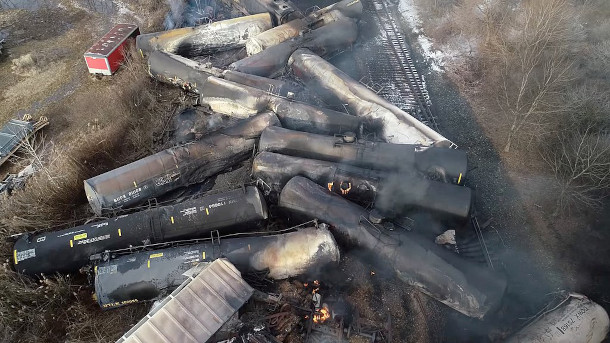
Drone footage shows the freight train derailment in East Palestine, Ohio, February 6, 2023. The train was carrying vinyl chloride, a chemical classified as a human carcinogen. Vinyl chloride is amongst the five chemicals the EPA will evaluate under the Toxic Substances Control Act. (Photo: National Transportation Safety Board, public domain)
DYKSTRA: EPA has begun a review of vinyl chloride. Polyvinyl chloride is a very familiar plastic used in a lot of different contexts. It could eventually potentially lead to serious restrictions, or even a ban. EPA is reviewing vinyl chloride under the Toxic Substances Control Act. That could bring about some health protections since polyvinyl chloride is listed as a carcinogen. It can cause liver disease, neurological problems; it's been known to cause miscarriages. And they're still produced in the billions of pounds each year in the US.
BELTRAN: Isn't PVC one of the chemicals that burned in that train derailment that happened in East Palestine, Ohio?
DYKSTRA: It is. And polyvinyl chloride is also a primary substance used for pipes. And it has been looked to as one of the primary replacements for lead water pipes that have caused problems in Flint, Michigan, and many other urban environments around the country. So there may be some changes in store for how we deal with this other huge health problem of lead water pipes.
BELTRAN: Well, we'll definitely have to follow up on what comes out from this chemical review by the EPA. What do you have for us today from the history books Peter?
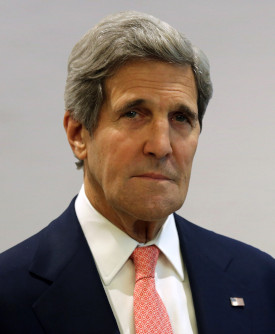
John Kerry has announced that he would step down as the United States’ first Special Presidential Envoy for Climate and join Joe Biden’s presidential reelection campaign. (Photo: United States Department of State, Wikimedia Commons, Public Domain)
DYKSTRA: Eleven years ago, January 24, 2013, John Kerry had a friendly confirmation as Secretary of State, replacing Hillary Clinton. He called climate change a life-threatening issue. It helped assure that the Obama administration would have an increased focus on climate.
BELTRAN: Yeah, and John Kerry recently announced that he will be leaving his post as special climate envoy by the end of this year, and he will be joining President Biden's reelection campaign, along with Al Gore.
DYKSTRA: Two of the biggest voices back in their Senate days on addressing climate change are now going to be doing so for the Biden Harris reelection effort. And let's see where it goes from there.
BELTRAN: Well, thank you for bringing us these stories, Peter. Peter Dykstra is a Living on Earth contributor, and we'll talk to you again real soon.
DYKSTRA: Okay, thanks a lot, Paloma. Talk to you soon.
BELTRAN: And there's more on the stories on the Living on Earth website. That's loe.org.
Related links:
- The Washington Post | “Maryland Hails ‘Remarkable’ Year for Young Oysters in the Chesapeake Bay”
- Learn more about the EPA’s review announcement of Polyvinyl Chloride
- San Diego Union Tribune | “Kerry: Climate Change a ’Life-Threatening Issue”
- Reuters | “US Climate Envoy John Kerry to Leave Biden Administration”
[MUSIC: The East Pointers “Best Surprise (Acoustic)”]
Climate Deception
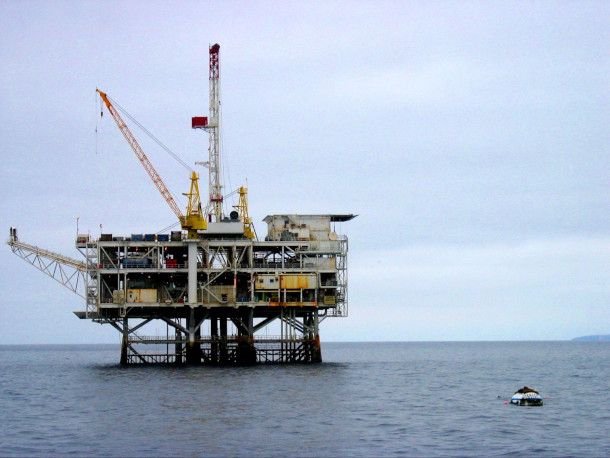
The Global Climate Coalition was a lobbying organization created by a group of fossil fuel companies to spread climate denial. One of its primary objectives was to block the United States from signing the Kyoto Protocol. (Photo: Marianne Muegenburg Cothern, Flickr, CC BY-SA 2.0)
DOERING: When scientists began to warn in the later half of the twentieth century that burning oil, gas, and coal could bring severe consequences for our planet, they touched a nerve in the powerful fossil fuel industry. In Part 1 of our series on climate change disinformation, we talked with Harvard historian of science Naomi Oreskes about the strategy and messaging behind the efforts of the fossil fuel industry to dupe the public into believing that climate science was uncertain. Today, we continue the chat between Naomi Oreskes and Host Steve Curwood to dive further into how the oil and gas industry infiltrated the political sphere and scientific community to block climate action.
ORESKES: The Global Climate Coalition was an organization put together by a group of fossil fuel companies, including nearly all of the major oil and gas companies in the United States like ExxonMobil, Chevron, Sunoco, also major coal producers like Peabody Coal, and also other groups whose businesses relied on cheap energy, so for example, Alcoa aluminum. This was very characteristic of the sorts of activities that we've seen repeatedly over the last 30 years; to create an organization that on the surface appears to be independent of the fossil fuel industry. So it doesn't say fossil fuels or industry in the title, Global Climate Coalition, maybe even to make it seem like it's a grassroots organization. So coalition seems to involve, you know, the sort of thing you imagine grassroots groups, public social movements, and to make it seem as if they care about the climate. The Global Climate Coalition, if you didn't know anything about it, you might think that that was a group who was trying to stop climate change. But in fact, what they were trying to stop was action to address climate change. And this group was put together for the specific purpose, and we know this because we have the documents, to prevent the United States Congress from ratifying the Kyoto Protocol.
CURWOOD: So just what exactly did the Kyoto Protocol propose?
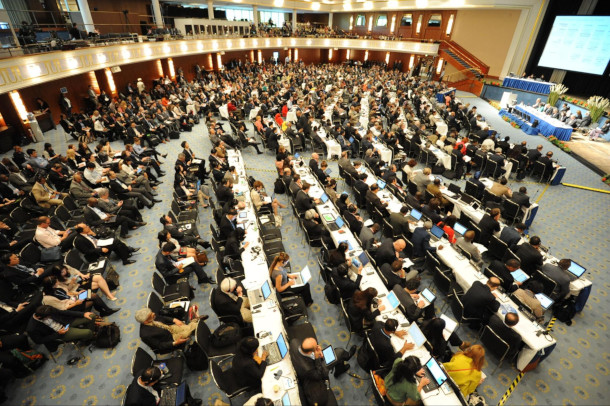
The Kyoto Protocol, adopted by the UNFCCC in December 1997, committed signatories to binding carbon emissions reductions. (Photo: UNclimatechange, Flickr, CC BY 2.0)
ORESKES: The UN Framework Convention on Climate Change, which President George H. W. Bush had signed on behalf of the United States, committed the US to taking action to stop, the famous phrase is, "dangerous anthropogenic interference with the climate system." But the 1992 convention is a statement of principle. It says we intend to do this, but it doesn't say how. The Kyoto Protocol says how. We're going to have binding emissions cuts. And those cuts will begin with the world's wealthy nations, what they call the so- called Annex 1 nations, which were the rich, highly industrialized countries like the United States, Canada, the European Union countries, Japan, Australia. These were all the countries that had become rich by burning fossil fuels. And at that time, most of the emissions in the atmosphere, something like I think 80%, had been produced just by about 10 or 12 countries. So the focus was on these countries that had industrialized early. And the idea was that this was fair, that this would be just, because we were the countries who had made the problem, and that once those countries were on board, then the second phase would be to think about developing nations like China and India. And then the third step would be to think about poor countries and how they could be helped to develop without fossil fuels. So it was actually a very logical and a very equitable approach. It really embodied a kind of environmental justice concept into the framework. The Global Climate Coalition launched major campaigns to scuttle that.
CURWOOD: So what tactics did the Global Climate Coalition use to block the Kyoto Protocol? And I do remember running into somebody from that group in Kyoto at the time, wondering what they were up to. What did they do?
ORESKES: Well, they worked on a number of fronts. So one front involved public opinion. They didn't want the public to be mobilized to demand action on climate change. And so one way they did that was to try to convince the public, that is to say to convince us, that the science around climate change was highly uncertain. And therefore it'd be foolish, it would be premature, to pass any kind of laws or sign any treaties. And so they ran advertising campaigns to persuade us that the Kyoto Protocol was unnecessary, that it would cost a lot of money. They also tried to influence newspaper editors and people like yourself, radio and television people, to send them materials suggesting that climate change was, we didn't really know, there was no scientific consensus, and again, that it would therefore be premature to sign on to the Kyoto treaty, because the Kyoto Protocol committed the signatories to binding reductions in carbon dioxide emissions. When that was killed, that was the last time that we ever had any serious international proposal for binding limits on greenhouse gas emissions.
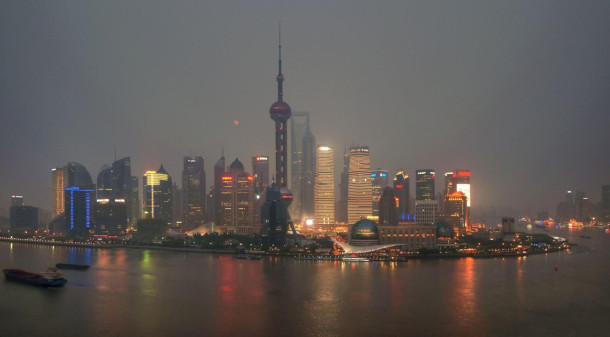
The Global Climate Coalition claimed the Kyoto Protocol would be unfair, since developed nations like the US were expected to cut their carbon emissions before developing nations like China. (Photo: Mariusz Kluzniac, Flickr, CC BY-NC-ND 2.0)
CURWOOD: By the way, what role did the Global Climate Coalition play in what's known as the Byrd-Hagel Amendment, and how that affected politics at the UN negotiations?
ORESKES: They played a very large role. So as I just said a moment ago, one front was to influence public opinion. But the other front equally, if not more important, was to influence Congress, to persuade American politicians not to agree, not to sign on to the Kyoto Protocol, to persuade American lawmakers that this was unfair, that it was unjust. It was an early version of the "what-about-ism," well, what about China, to say that somehow this would be unfair for us to have to cut our emissions if China and India weren't also cutting theirs, and that it would hurt the American economy. And so they persuaded both Democrats and Republicans, essentially to reject it. And the rejection took the form of the Byrd-Hagel Amendment. That was named after Robert Byrd, a Democrat from West Virginia, a big coal state, and Chuck Hagel from Nebraska, a big oil and gas state. And it essentially said that the United States should not sign any international treaty that would be economically disadvantageous to the United States. And it was targeted at Kyoto. And that passed the Senate, I believe it was 95 to zero?
CURWOOD: Unanimous, in any case.
ORESKES: Unanimous, no opposition whatsoever. And once that passed, Kyoto was effectively dead. And so the Clinton administration never even tried to bring Kyoto to a vote in Congress, knowing that it was at that point a lost cause.
CURWOOD: Now, talk to me about the other important fossil fuel lobbying groups that have gained power over time. How do they influence political will, do you think?
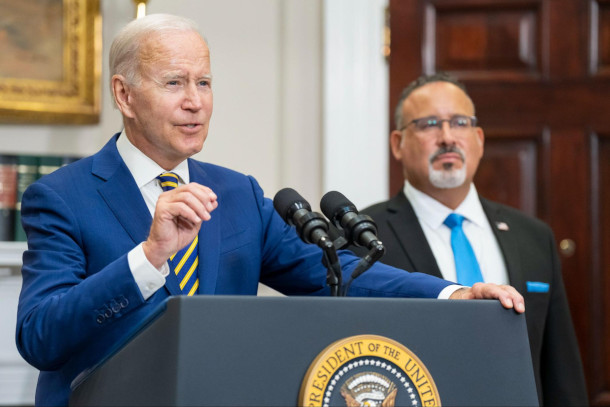
Prof. Oreskes says the Inflation Reduction Act is the first time in US history that any law has been passed by the US Congress to address the climate crisis. She credits this delay in part to “massive organization” by pro-fossil fuel interests against previous laws addressing the climate crisis. (Photo: Prachatai, Flickr, CC BY-NC-ND 2.0)
ORESKES: Well, I think they've influenced it a lot, because we've seen that every time there's been an attempt to have a meaningful law passed in Congress, we've seen massive organization against it. And the Inflation Reduction Act, which was just passed recently under the Biden administration, is the first time in US history that any law has been passed by the US Congress to address the climate crisis. And this is in the 30 years since we signed the UN Framework Convention on Climate Change. So we've had 30 years where Congress has failed to make good on the promise of the United Nations Framework Convention on Climate Change. A lot of this work was done not by the fossil fuel companies themselves, but by what they call third party allies. So other groups who appear to be independent, but are not. And many of these are think tanks. So in our work, we've documented the role of a number of think tanks, and there are literally scores of these groups. And at one point, I tried to put together a slide to list them all, and it got to be the font had to be so tiny, you couldn't read it. But we've documented at least 100 of these organizations in the United States and elsewhere. They include groups like the Heartland Institute, who have directly attacked scientists, groups like the Competitive Enterprise Institute, the American Enterprise Institute, the Cato Institute, and many, many more. What they all have in common is that they all promote free market principles. They all promote the idea that we shouldn't need the government to intervene in the marketplace, and therefore we shouldn't act on the climate crisis. Now some of them make that argument in a way that, I would say is honest, but wrong, in my opinion, which is to say, we don't need the government to do anything. The market will solve it on its own. I think we have plenty of evidence to show that that idea is incorrect. But I wouldn't say, it's not exactly disinformation. But many of them have pursued disinformation. And by that, I mean, they have issued reports, had conferences, workshops, written opinion pieces in which they claim that the science is unsettled. Or they claim that we don't really know what's causing climate change, or they claim that the cost of fixing it will be greater than the benefit. And these things are false.
CURWOOD: Now, of course, another way that the fossil fuel industry has protected its position here is through campaign financing, to get politicians in office who will go along with the story that they're telling. Talk to me about how that practice began, and why it is so important when it comes to understanding the influence of the fossil fuel industry in today's world?
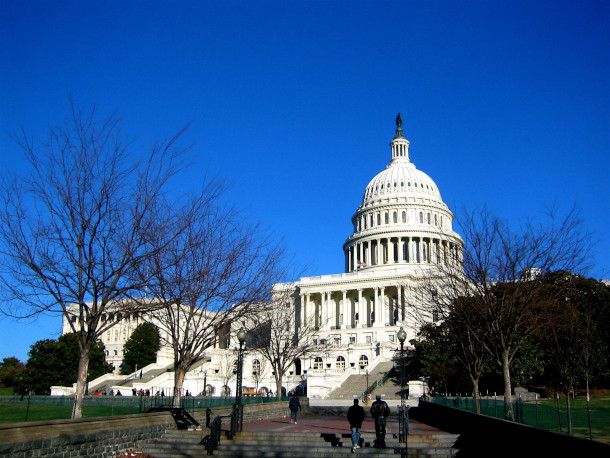
Some fossil fuel companies directly fund some politicians on Capitol Hill through campaign financing. (Photo: Elliot P., Flickr, CC BY-SA 2.0)
ORESKES: Well, in a way you can think of that as the third front, which is the direct funding of politicians. And as we all know, money plays a big role in American politics. And it's played an even bigger role since the Citizens United Supreme Court decision, which essentially removed any limits on the amount of money that individuals or groups could give to politicians or people running for office. We know that many hundreds of millions of dollars have been funneled by the fossil fuel industry to candidates for public office and people holding public office. Senator Sheldon Whitehouse of Rhode Island wrote a piece a few years ago where he showed that if you look at the people in Congress who are the major recipients of fossil fuel funding, not one of them has ever voted in support of a climate bill, ever. So the link is pretty obvious. The fossil fuel industry doesn't want us to have policies that would limit the use of fossil fuels because that would cut into their profits. And so they fund candidates, in part to make sure that their interests are represented on Capitol Hill.
CURWOOD: To what extent is this phenomenon of money in politics when it comes to climate change elsewhere on the planet? I mean, we have quite an open and lengthy political season here. What about the other democracies around the world?
ORESKES: Yeah, that's a great question. I haven't really studied the role of politics in other democracies. But as you alluded to a moment ago, we have this extremely lengthy campaign process in the United States, where there's essentially no limit to when the campaign can begin, and when people can begin spending money. Most European democracies don't permit that. The campaign has a finite amount of time. And there's a finite amount of time during which you can spend money on things like advertising. It doesn't eliminate the role of money in politics, but it controls it to some extent. So we don't see quite the same degree of industry capture as we see in the United States. But of course, you know, money plays a role in politics everywhere.
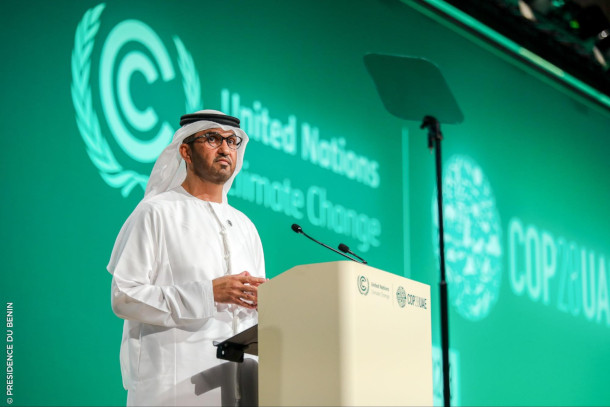
Sultan Al-Jaber, the CEO of oil company Adnoc and President of COP 28, claimed there was no scientific basis for the 1.5-degree Celsius target set by the Paris Agreement. (Photo: Mark Field, COP28, Présidence de la République du Bénin, Flickr, CC BY-NC-ND 2.0)
CURWOOD: To what extent do you think the difference in political systems allowed Europe to proceed with its own version of the Kyoto Protocol, whereas the United States simply completely opted out?
ORESKES: Yeah. I think we've seen in the last 30 years, in many different ways, not just in terms of climate, but other issues, too, and the ways in which parliamentary systems, they're not perfect, but overall do a better job of representing the interests of people, in part because minority parties can earn seats and have a voice in parliament. So for example, in Germany, the Green Party has never been the dominant party in German politics, but it's been a significant minority voice. And because people have to build coalitions, often in a parliamentary system, you'd have to create a coalition in order to govern, the Green parties have been able to influence policy in Europe in a way that they have not in the United States.
[MUSIC: Roy Hargrove, “Stasbourg / St Denis” on Earfood, Groovin’ High]
BELTRAN: Naomi Oreskes is a historian who has authored books including The Big Myth: How American Business Taught Us to Loathe Government and Love the Free Market. We’ll have more from her conversation with Host Steve Curwood in just a moment. Keep listening to Living on Earth.
[MUSIC: Roy Hargrove, “Stasbourg / St Denis” on Earfood, Groovin’ High]
ANNOUNCER: Support for Living on Earth comes from Friends of Smeagull the Seagull and Smeagull’s Guide to Wildlife. It’s all about the wildlife right next door to you! That’s Smeagull, S - M - E - A - G - U - L - L, SmeagullGuide.org.
[CUTAWAY MUSIC: Roy Hargrove, “Stasbourg / St Denis” on Earfood, Groovin’ High]
DOERING: It’s Living on Earth, I’m Jenni Doering
BELTRAN: And I’m Paloma Beltran.
We’re back with more from Host Steve Curwood’s chat with history professor Naomi Oreskes on the influence of the fossil fuel industry on international politics. The long campaign to delay and slow action on climate change has included infiltrating the scientific community.
CURWOOD: Let's talk about the IPCC now for a moment. That's the Intergovernmental Panel on Climate Change. You're a historian of science, Naomi. And this organization was created by scientists to look at the question of climate disruption. I think it's 1988. To what extent did the fossil fuel industry play a role in how climate science from the IPCC was put together and then told to the public?
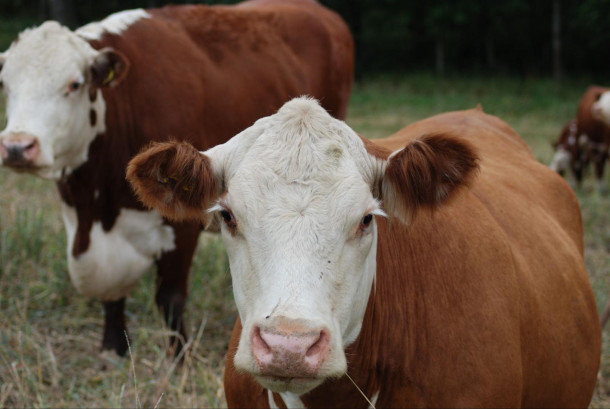
In the United States many agricultural carbon emissions are tied to beef production. (Photo: Anders Gustavson, Flickr, CC BY-NC 2.0)
ORESKES: So the answer to the IPCC is very interesting, because it's a quite unusual organization historically, because it's a hybrid organization of science and governance. So the IPCC was created as a joint venture between scientists through the World Meteorological Organization, an international scientific group, and the United Nations Environment Programme. So it was a conscious, deliberate attempt to bring the science and the politics together, so that scientists could give information to policymakers so that politicians could make good, scientifically informed decisions about this really important issue that we were facing. And I think in the early years, people were extremely optimistic that even though they knew there would be industry resistance, they didn't think it would be that big a deal. And we know something about why because we've interviewed many of the scientists who are involved. The IPCC was modeled in many ways, on something called the Ozone Trends Panel. That was a group that was organized to address the ozone hole. And it had been very successful in informing policy. And it had provided the scientific basis for the Montreal Protocol, which was an equivalent kind of protocol to protect stratospheric ozone. Industry had pushed back against it, but it had been managed. And the Montreal Protocol was this very, very successful piece of science based policy that successfully protected us from stratospheric ozone depletion. So that was the model. It was a success story. And scientists thought, well, we did it for ozone, so we could do it now for climate. But what they didn't count on was that there would be a much larger, much more extensive, and frankly, much nastier industry response. And I think part of the reason for that is, well, first of all, fossil fuels are more important. I mean, the chemicals that created ozone depletion were useful chemicals, but the whole world economy didn't depend on them. And only one company made most of those chemicals. It was DuPont. When DuPont's own scientists said, hey, these chemicals are really, really bad, this is potentially threatening the existence of life on Earth, DuPont did the right thing and said, okay, find us substitutes, and their scientists did. But the fossil fuel industry behaved very differently. Instead of saying, okay, we need to find substitutes, they essentially said there are no substitute. And so we will fight to the death to defend fossil fuels. And so right from the get-go, there was much more industry opposition. The other thing that industry did was they put their own people inside the IPCC. So there were scientists who worked in industry, for example, scientists who worked for ExxonMobil, who actually became participants in the IPCC process. Now, why did IPCC do that? Well, they were trying to do the right thing. They were trying to be open minded, and inclusive and capacious and say, yeah, industry scientists have something to say. There's no reason why we should exclude them. And so they actually welcomed these industry scientists into the process. And you can see, especially in the early reports, industry scientists who are coauthors on some of the key chapters. But what we now know, in hindsight, and again, from interviews with scientists, that at least some of the scientists worked to weaken the reports. They played the role of the skeptic, the contrarian, the naysayer. And so the IPCC reports, were, in my opinion, softer or weaker than the science actually warranted at that time. I think there are a few reasons for that. But I think one of the reasons is the role of industry scientists who were inside the IPCC, pushing back against firmer, stronger conclusions.
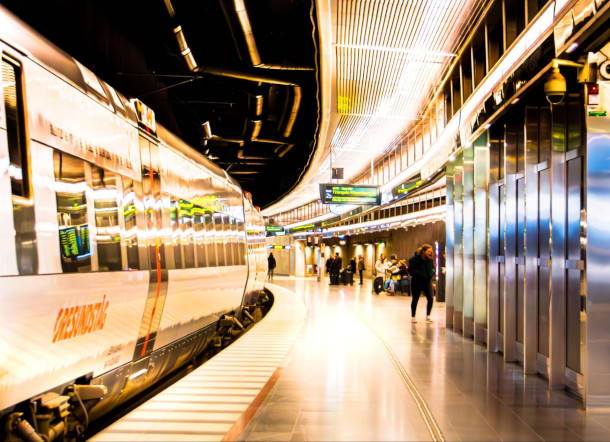
Local changes in public transport, electric vehicle infrastructure, and building codes can still make a difference in global carbon emissions, Prof. Oreskes says. (Photo: Maria Ekland, Flickr, CC BY-SA 2.0)
CURWOOD: So the most recent Conference of the Parties of the UNFCCC, had an oil executive as president of it. And next year, there's a former oil executive who will be in charge in Azerbaijan, although he's officially I guess, the Minister of the Environment there. What do you make of those developments?
ORESKES: Well, it's very sad, and it's actually painful to talk about. I have many good friends who are active in the COP process. I know a lot of people who are still committed to it, who feel that we can't give up. But I think the reality and we're seeing it very clearly, as you said, this will now be two meetings in a row run by fossil fuel executives. Essentially, the whole process has been captured by the fossil fuel industry. So Al Jaber, who headed up the COP 28 has just completed, stated shortly before the meeting began, that there was no scientific basis for the 1.5 degree threshold that we always talk about. Well, I mean, that was just preposterous. And, you know, you didn't know whether to laugh or cry at a claim like that. But I live in a world where people are constantly saying to me well, but you know, climate change denial, that's a thing of the past, right? Nobody really denies the reality of climate change. And then Al Jaber says there's no scientific basis for 1.5. And it's a continued rejection of the solidity of the scientific evidence, the solidity of the scientific data. And we're also seeing a politics of distraction. So they began the meeting by doing something very clever, announcing some steps to restrict methane emissions from oil and gas production. Well, that's not a bad thing. I mean, as long as you're still producing oil and gas, you definitely would like to reduce the methane leakage from oil and gas wells. But it's a small piece of the whole picture. And if it distracts attention from the larger fact, which is that you're still burning oil and gas, you're still producing oil and gas, you're still selling oil and gas, then it becomes the equivalent of the tobacco industry pushing low tar cigarettes.
CURWOOD: Before you go, Naomi, what do you think, is to be done? I mean, how do we move beyond the grasp of the special interest of the fossil fuel industry to keep burning this stuff, and at the same time burning the planet, and move into a future that we can sustain?
ORESKES: Well, it's obviously very difficult. But I think one thing that people can do as individuals, and I often like to talk about this, because this is such a depressing story, that this is kind of one piece of this that's empowering, which is that we can change the way we eat. And we don't have to depend on Congress because we can make our own choices. So we know from various studies that if you think about all the greenhouse gas emissions that are going into the atmosphere, it breaks down roughly 60/40. Sixty percent have to do with using fossil fuels, and the other 40% has to do with the land with agriculture, deforestation, and other forms of land use changes. A big piece of those emissions come from animal agriculture, particularly in the United States, beef. And so we have a lot of agency about food. You know, this is a small good news story: if you eat less red meat, it's good for the planet. But it's also good for you, it's good for your body. So that's a win win. And it's cheaper, too. The other thing that we can do is to lower our gaze. And by that I mean to work more locally, particularly on the state and local level, because a lot of attention has been put into the COP process, the big international agreement, a lot of attention has been put into the federal government. And of course, it would be great if we could get international cooperation. And it would be great if we could get Congress to act meaningfully. But in the absence of that action, there's a lot we can do on the state and local level. And especially if you think about fossil fuel use, fossil fuel use is tied up with economic activity. And most economic activity takes place in cities, and most American cities are progressive. You know, we often talk about red states and blue states. But that's not actually what we're looking at. What we're really looking at is blue cities and red rural areas. Most people live in cities, most economic activity takes place in cities. So if we can get cities to work more aggressively, and many cities are, but to amp up those efforts, with better building codes, you could have city or state based carbon pricing systems, do more to build up electric car infrastructure in cities, do more to build up public transportation. So I think there's a lot we can do on the state and local level. There's a lot we can do as individuals. In my own town of Carlisle, we recently passed a stricter building code. And I spoke at town meeting to say exactly what I just said today. This is something that we can do here, tonight, that doesn't depend upon the federal government. So let's do it. And I'm proud to say that in Carlisle, we did.
DOERING: That’s Harvard Professor of the History of Science, Naomi Oreskes, speaking with Living on Earth Host and Executive Producer Steve Curwood.
Editors Note: In the interview the Byrd-Hagel Resolution was incorrectly referred to as the Byrd-Hagel “Amendment.”
Related links:
- Listen to Fossil Fuel Deception Part I
- The Guardian | “The Forgotten Oil Ads That Told Us Climate Change Was Nothing.”
- Global Climate Coalition Advertisements
- Global Climate Coalition Documents
- Advocating Inaction: A Historical Analysis of the Global Climate Coalition
- Kyoto Protocol
- United Nations Framework Convention on Climate Change
- Byrd-Hagel Resolution
- IPCC (Intergovernmental Panel on Climate Change)
- Montreal Protocol
- The Guardian | “COP President Says There Is ‘No Science’ Behind Demands for Phase Out of Fossil Fuels.”
[MUSIC: Dave Matthews Band, “The Dreaming Tree” on Before These Crowded Streets, Bama Rags Recordings]
Joe Manchin, 3rd Party Candidate?
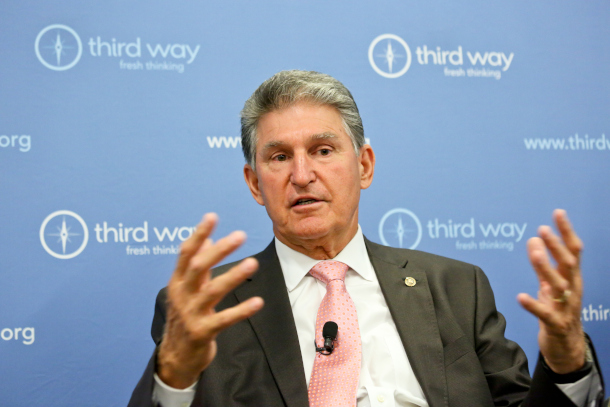
Democratic Senator Joe Manchin in 2017. From the coal-producing state of West Virginia, Senator Manchin has historically advocated for fossil fuel interests. (Photo: Third Way Think Tank, Flickr, CC BY-NC-ND 2.0)
BELTRAN: So Jenni, there’s a lot of focus on New Hampshire as voters head to the polls to vote in the primary on January 23rd. The purple state has long played a key role during the primaries as well as in the general election.
DOERING: That’s right. It’s a small state so even though it doesn’t offer that many electoral votes, sometimes a handful makes all the difference.
BELTRAN: Exactly. You know, this has played out over the years including in 2000, when George W. Bush ran against Al Gore.
DOERING: Oh yeah, that was the first presidential election I really remember, though it got pretty confusing with all the ballot recounting from those “hanging chads” in Florida.
BELTRAN: Right? But what’s funny is they wouldn’t have even mattered if there had been a different outcome in New Hampshire, with its four electoral votes. And it was actually very close. Bush led Gore in the state by only 7,000 votes. And here’s the kicker: 22,000 New Hampshire voters chose the third party candidate, Ralph Nader of the Green Party. So, many have speculated that if Nader hadn’t run and Gore had picked up just some of those ballots in New Hampshire, Al Gore would have had 270 electoral votes, just enough to win.
DOERING: Wow. Paloma, I think in our two-party dominated system it’s really easy to forget about how much of an effect third parties can have.
BELTRAN: And it could happen again, if West Virginia Democrat, Senator Joe Manchin decides to jump in the presidential race this year as an independent.
DOERING: Yeah, so Inside Climate News reporter Phil McKenna has been back on the campaign trail in New Hampshire, this time following Joe Manchin. Phil?
MCKENNA: Hi, Jenni, hi Paloma. Yep, this week I was at a “Politics and Eggs” breakfast hosted by the New England Council near Manchester, as part of a “listening tour” that Manchin is doing to explore a possible third-party presidential campaign.
BELTRAN: Hmm. ‘Politics and Eggs’ - sounds appetizing, if you have the stomach for politics! What was the mood there?
MCKENNA: Well, this event had a lot of corporate sponsors including TC Energy one of the largest oil and gas pipeline companies in North America and Dominion Energy, a large electric utility company. And it was a pretty friendly crowd with a couple hundred people there. One big question on people’s minds was - is he gonna run?
DOERING: So you mention energy companies partly sponsored the event, how much did climate factor in?
MCKENNA: Well, there was one person, a retiree not from the corporate sector who raised the issue of climate change. Roger Stephenson spent his career with the Union of Concerned Scientists and the League of Conservation Voters.
STEPHENSON: One thing you did say is you would, at one point, wage an unrelenting fight against the Biden administration’s efforts to implement the IRA as a radical climate agenda. Can you explain how New Hampshire communities that are vulnerable to increasing damaging flooding, such as Hampton this week, Dover, Portsmouth, as well as low-income and underserved communities all along our most vulnerable coasts can reduce and respond to climate impacts without the IRA.
MANCHIN: Sure. Well, let me just tell you this. The IRA is probably the most, I think, prolific piece of legislation we’ve ever had as far as moving both agendas in the climate. As I’ve said before, we’re all responsible for the climate, and I take it very seriously. We’re using, the world is using and it’s called global climate not New Hampshire climate not West Virginia climate or United States climate, it’s global climate. If you look at what’s happening in the world, we’ve been decreasing, and we can do it more than any other country. I’ve always said you cannot eliminate your way to a cleaner climate. You can innovate, if you want the world to follow.
BELTRAN: So, by “innovate” does he mean we should focus more on technology?
MCKENNA: Well, Senator Manchin wants the priority to be on cutting carbon emissions through things like carbon capture and storage. And in fact he wants us to be energy secure through the continued use of fossil fuels.
MANCHIN: But there’s my friends on the far left who believe they can eliminate. Stop using this, stop using that, stop using. That’s not going to happen. 90% of all pollution will come from one continent, Asia, in the next ten years.
MCKENNA: So he’s saying in comparison, our emissions here in the U.S. are going to be a drop in the bucket. But he’s getting a lot of pushback for his pro-fossil fuels stance. Later that day, after “Politics and Eggs” there was a “Cup of Joe” meet-and-greet in Derry where some climate activists from the group Climate Defiance surrounded the Senator, they got right up in his face.
ACTIVISTS: [CHANTING] Off fossil fuels, Manchin, off fossil fuels!
DOERING: Oh wow. Sounds like these protesters mean business.
MCKENNA: Yeah, at first Manchin tried to engage the protesters, he said, okay, let’s talk. But they just kept chanting and all he could do was kind of smile and shrug it off. The protesters completely disrupted the event for a few minutes before they were escorted out by police.
BELTRAN: Of course, as a politician from coal-rich West Virginia fossil fuels have been pretty central to Senator Manchin’s career, right?
MCKENNA: Yeah Paloma, as you know he’s been an outspoken supporter of coal, oil and other fossil fuels even as the Democratic party as a whole wants to phase them out. He chairs the Energy and Natural Resources Committee and is the largest recipient of oil and gas money in all of Congress. In 2022 alone he received almost $780,000 dollars in campaign finance from the oil and gas industry according to the nonprofit Open Secrets. He has also made millions of dollars over the decades from a coal brokerage company he founded before entering politics. Back in 2010 he literally shot a hole in a climate bill in a campaign ad.
DOERING: Wow! And I do remember there was a lot of back and forth between Senator Manchin and the Biden administration when drafting and voting on the Inflation Reduction Act.
MCKENNA: Yeah, that’s right and now that the IRA is being implemented that back and forth continues. At a hearing last week, Senator Manchin threatened to sue the administration for putting too much emphasis on clean energy incentives and not enough on energy security.
BELTRAN: So Phil, what else did other New Hampshire voters have to say about the climate crisis and elections?
MCKENNA: Well, you heard that question at the breakfast event and the reference to recent flooding in the beach town of Hampton, New Hampshire. I decided to go there to hear what people had to say. I spoke to Steve Deshaies, the owner of Ocean Cycles and Board Shop in Hampton Beach. He sells skis and ice skates but isn’t selling much of anything this winter.
DESHAIES: We're getting rain, and we're getting warm weather. And I mean, like, it's totally killed the business. You know, our sales are probably off 80%.
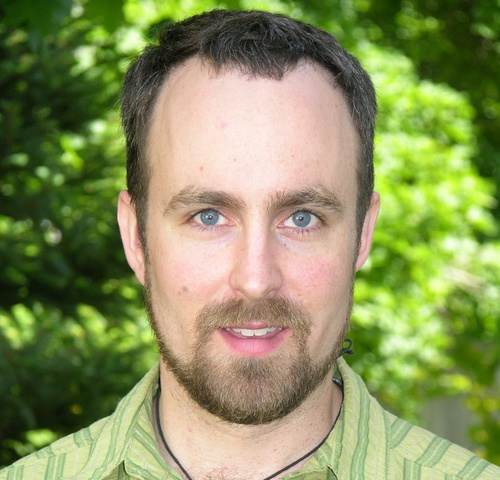
Inside Climate News writer Phil McKenna (Photo: Courtesy of Phil McKenna)
MCKENNA: He had water enter his shop floor on Wednesday and again on Saturday, he told me that it was the worst he has seen in the nearly 30 years he has been there.
DESHAIES: It came into building you can see if you look under the bench, you can see seaweed. Yeah, the water was right up to the door. What happened, that was like probably about three quarters of the way through the high tide. And then the fire truck drove by it just sent this big wave right across the right across the sidewalk and bang.
MCKENNA: And Steve Deshaies said he doesn’t have flood insurance.
DOERING: Phil, did he say anything about whether he thinks climate change is related?
MCKENNA: He said he isn’t sure if climate change is to blame, but if it is, he said it’s too late to do anything about it. He didn’t think Manchin, if he decides to run, had a chance against Trump and would likely vote for the former president.
BELTRAN: Mmm, and what about the other folks you spoke with, what did they have to say about the flooding?
MCKENNA: I spoke to Charlotte Brown, who avoided the downtown area completely, since everything had to be shut down.
BROWN: I think a lot of it has to do with climate change. But I think some of its infrastructure. You know, but I think a lot of the worst part of it is from climate change. Absolutely. I think climate is a huge issue. And if we don't start addressing it, we're not going to have the opportunity to address it properly.
MCKENNA: Charlotte told me that she’s an independent who will not vote in the Republican Primary. She says we have to do something about climate, but she’s not sure who she will vote for in the general election.
DOERING: So, it sounds like a lot of the folks you spoke to are living the reality of the climate crisis, but we’ll have to see how that translates to the ballot box. I guess Senator Manchin hasn’t made up his mind yet about running for president, but what could a Manchin campaign mean in the general election?
MCKENNA: Well, there are questions about vote splitting. Past isn’t necessarily prologue but if you remember 2000, George W. Bush narrowly won New Hampshire over Al Gore. Thousands of votes that might have gone to Gore went instead to Ralph Nader of the Green Party, potentially changing the outcome of the election both in New Hampshire and the country. And some may be wondering, or even hoping, if Senator Manchin could have a similar effect and tip the election in one direction or another.
BELTRAN: Well, keep us posted, Phil, and thanks! Phil McKenna reports for Inside Climate News.
MCKENNA: Thanks Paloma, thanks Jenni. Talk to you next time.
Related links:
- Sen. Joe Manchin (D-WV) on Energy and Natural Resources
- Read more of Phil McKenna’s articles for Inside Climate News
- Listen to our previous coverage of the 2024 Presidential Election with Phil McKenna
[MUSIC: Pat Metheny, “And I Love Her” on What’s It All About, Nonesuch Records]
DOERING: Living on Earth is produced by the World Media Foundation. Our crew includes Naomi Arenberg, Josh Croom, Swayam Gagneja, Mattie Hibbs, Mark Kausch, Mark Seth Lender, Don Lyman, Sarah Mahaney, Aynsley O’Neill, Sophia Pandelidis, Jake Rego, El Wilson, and Jolanda Omari. We welcome Sommer Heyman and Quentin Bell to our crew this week.
BELTRAN: Tom Tiger engineered our show. Alison Lirish Dean composed our themes. Special thanks this week to the New England Council. You can hear us anytime at L-O-E dot org, Apple Podcasts and Google Podcasts, and like us, please, on our Facebook page - Living on Earth. We tweet from @livingonearth. And find us on Instagram at livingonearthradio. And you can write to us at comments at loe dot org.
Steve Curwood is our Executive Producer. I’m Paloma Beltran.
DOERING: And I’m Jenni Doering. Thanks for listening!
ANNOUNCER: Funding for Living on Earth comes from you, our listeners, and from the University of Massachusetts, Boston, in association with its School for the Environment, developing the next generation of environmental leaders. And from the Grantham Foundation for the protection of the environment, supporting strategic communications and collaboration in solving the world’s most pressing environmental problems.
ANNOUNCER 2: PRX.
Living on Earth wants to hear from you!
Living on Earth
62 Calef Highway, Suite 212
Lee, NH 03861
Telephone: 617-287-4121
E-mail: comments@loe.org
Newsletter [Click here]
Donate to Living on Earth!
Living on Earth is an independent media program and relies entirely on contributions from listeners and institutions supporting public service. Please donate now to preserve an independent environmental voice.
NewsletterLiving on Earth offers a weekly delivery of the show's rundown to your mailbox. Sign up for our newsletter today!
 Sailors For The Sea: Be the change you want to sea.
Sailors For The Sea: Be the change you want to sea.
 The Grantham Foundation for the Protection of the Environment: Committed to protecting and improving the health of the global environment.
The Grantham Foundation for the Protection of the Environment: Committed to protecting and improving the health of the global environment.
 Contribute to Living on Earth and receive, as our gift to you, an archival print of one of Mark Seth Lender's extraordinary wildlife photographs. Follow the link to see Mark's current collection of photographs.
Contribute to Living on Earth and receive, as our gift to you, an archival print of one of Mark Seth Lender's extraordinary wildlife photographs. Follow the link to see Mark's current collection of photographs.
 Buy a signed copy of Mark Seth Lender's book Smeagull the Seagull & support Living on Earth
Buy a signed copy of Mark Seth Lender's book Smeagull the Seagull & support Living on Earth

